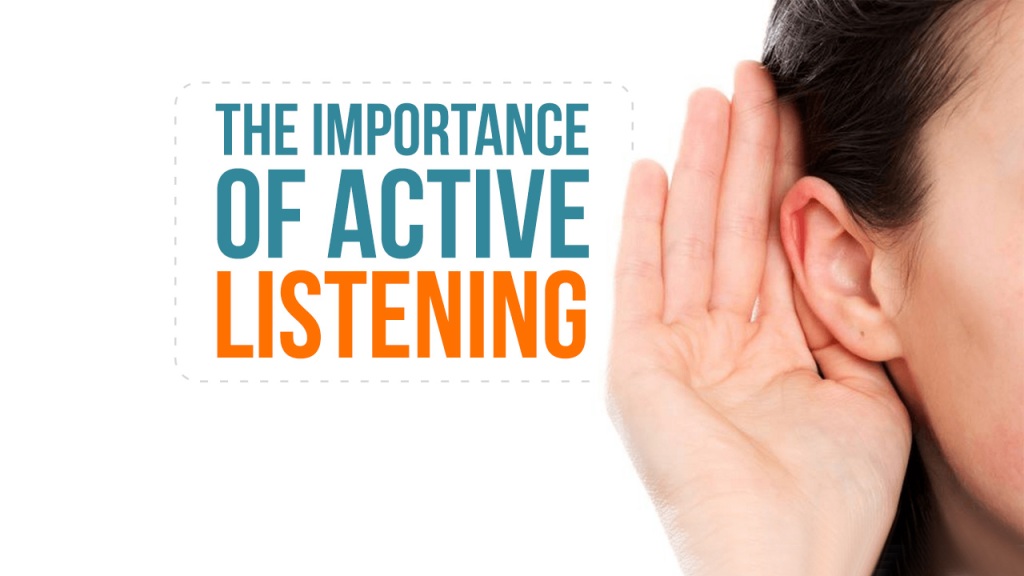
One of the most important skills we can develop is to be an active listener which can have a positive impact on our relationship with others, our job effectiveness, and our ability to be productive and efficient.
According to Dale’s Cone of Experience, which is a model that incorporates several theories related to instructional design, we only remember between 25 and 50 percent of what we hear. Active listening can improve productivity and our ability to understand and negotiate with others. Furthermore, it helps us to avoid conflict and misunderstandings.
Stephen R. Covey, author of the 7 Habits of Highly Effective People: Powerful Lessons in Personal Change says that “Most people do not listen with the intent to understand; they listen with the intent to reply” It takes thoughtfulness and practice to actively listen during a conversation.
Being an active listener helps you to understand and focus on what the other person is saying and when you listen, giving your full attention to the other person, you are showing interest and respect.
How to actively listen
When the other person is talking, concentrate on listening, don’t allow your thoughts to drift. Focus on the present moment, don’t think about what you will say in response. The Dalai Lama said “When you talk, you are only repeating what you already know. But if you listen, you may learn something new.”
Imagine that there will be a quiz when you are finished with the conversation. This helps you focus on what the other person is saying.
Don’t interrupt or change the subject.
If you need clarification or a better understanding of what the other person is saying, try reflecting by repeating the speaker’s words back to them. You might respond with phrases like “What I’m hearing is…” and “It sounds like you are saying…”
Listen not only to the words being spoken but notice their body language and how they are feeling.
Listen without judgement. Be open and understanding of others’ opinions and views.
Make eye contact and use body language that shows you are open and paying attention.
Take notes if you need to remember details about the conversation or if the speaker is giving instructions.
Ask questions, this shows that you are paying attention to what the other person is saying. You might say “What do you mean when you say… ” or “Is this what you mean?” Also, ask open-ended questions to encourage further discussion.
Focus all your attention on the conversation. Choose a quiet location, don’t use your phone or computer, and limit other distractions.
Sometimes a person just needs to talk to convey their feelings or thoughts, they are not always looking for feedback or advice. Unless they ask don’t offer your opinion.
Become comfortable with silence, many people are uncomfortable when presented with silent moments during a conversation. Train yourself to accept this as normal. Silence can allow you to absorb what is being said. Not every gap in conversation needs to be filled.
Keep confidential information confidential. One of the most important elements in a relationship is trust. Never repeat anything private that someone tells you.
Learning to be an active listener will help you build better, deeper relationships with others by simply being there, paying attention, and asking questions that make the person feel heard and understood. And by listening you will acquire new information, learn to be more empathetic, become a better problem solver, and increase your attention span. When we listen, we learn.